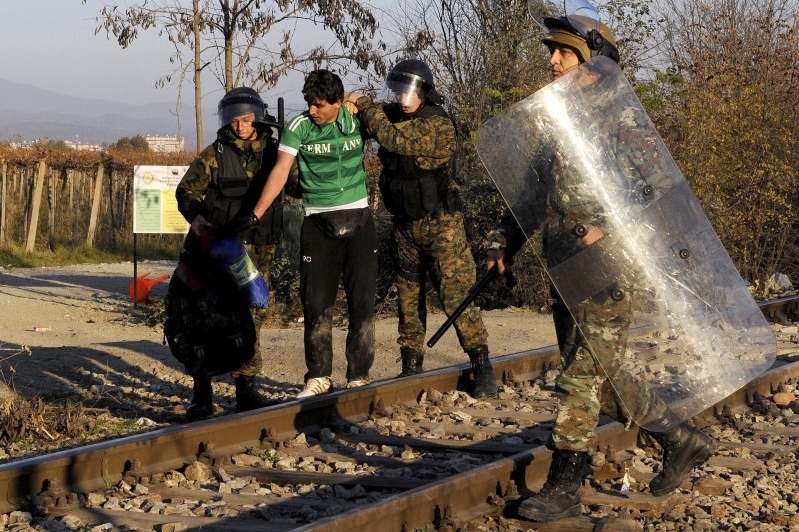
The European Union will tighten checks at external borders of the passport-free Schengen area, including for its own citizens who enjoy free movement within the bloc, to boost security after the attacks in Paris by armed militants.
The bloc's interior and justice ministers, at an emergency meeting in Brussels on Friday, will discuss beefing up security and new counter-terrorism measures in the wake of the Nov. 13 attacks that killed 129 people in the French capital.
Paris requested more controls at external borders of the 26-nation Schengen area, of which most EU countries are members, after law enforcement bodies blamed the attacks on French and Belgian nationals, including an Islamic State fighter returned from Syria.
The ministers will agree to "implement immediately the necessary systematic and coordinated checks at external borders, including on individuals enjoying the right of free movement", according to draft conclusions of the meeting seen by Reuters.
The deadly attacks in Paris, seen as the work of the Islamic State militant group, and the impact of thousands of migrants into Europe fleeing conflict and hardship in the Middle East, have triggered an internal debate on the merits and disadvantages of the Schengen area.
Most EU officials defend it as the most ambitious achievement of European integration, in spite of criticism from some members that recent events show it is failing.
The Netherlands has floated an idea of creating a "mini-Schengen" zone with the existing one to introduce passport checks at the borders of several Western European states.
Germany said it was not enthusiastic about the idea and the European Commission, the bloc's executive arm, said it received no formal proposals to that end, adding that any such discussions could be held on Friday.
"Schengen is not the problem. If we make full use of the tools given us by Schengen... our external borders will be protected in a more efficient way," the EU Migration, Home Affairs and Citizenship Commissioner, Dimitris Avramopoulos, told a briefing on Wednesday.
"We don't intend to open a discussion on Schengen's future. Certain things have to improved and revised, but ... if we put Schengen into question, it will mark a backtrack of European integration. We should not permit it."
Citizens of Schengen zone, which does not include Britain, Ireland, Croatia, Cyprus, Romania and Bulgaria, have their documents visually checked already when they leave or enter the area.
The new proposal would upgrade the controls to check the documents against criminal and security databases.
MORE SECURITY
Friday's draft conclusions show the EU plans to crack down on virtual currencies and anonymous payments made online and via pre-paid cards in a bid to tackle terrorism financing.
The six-page document also urges stepping up of intelligence sharing, stricter rules on firearms as well as tackling the phenomenon of foreign fighters, EU citizens who venture out to join radical groups and then come back to Europe.
Ministers will also call for progress on sharing airlines travelers' data, long opposed by EU lawmakers on the grounds that it would infringe people's privacy.
The violence in Paris also triggered the tightening of counter-terrorism legislation by the European Commission, while Belgium pledged a security crackdown and an extra 400 million euros ($427 million) to fight Islamist violence.
But the head of Europol, the coordinating organization of EU countries' police forces, on Thursday poured cold water on hopes that any new measures would guarantee full security.
"It is reasonable to assume ... that further attacks are likely," Rob Wainwright told a hearing in the European Parliament in Brussels.






